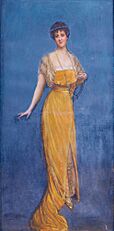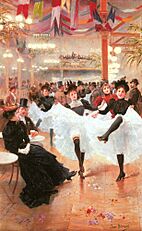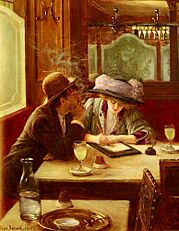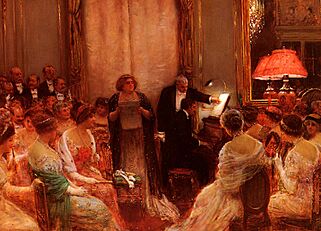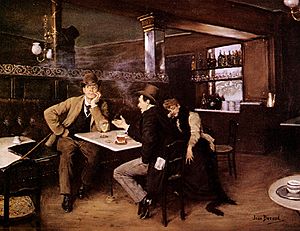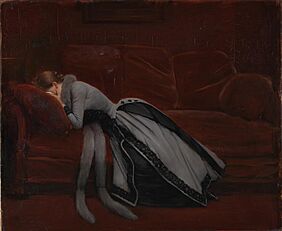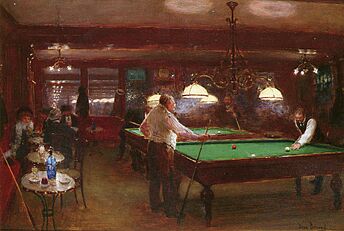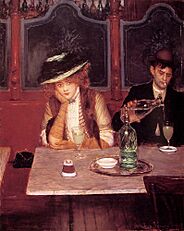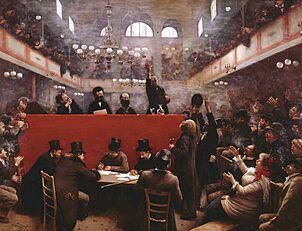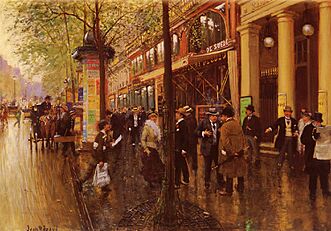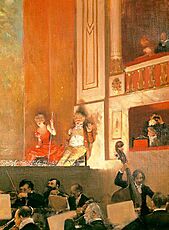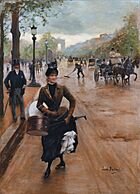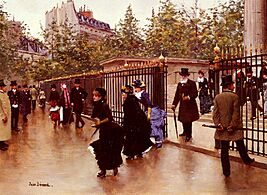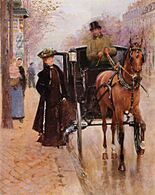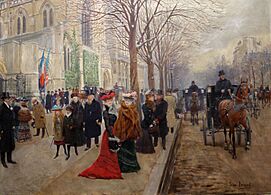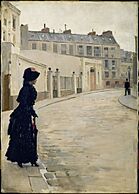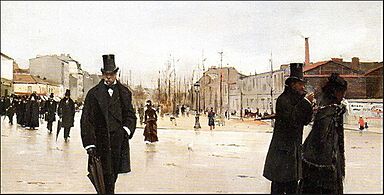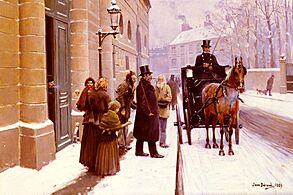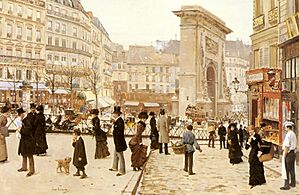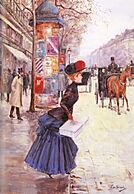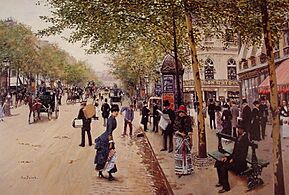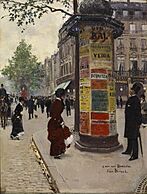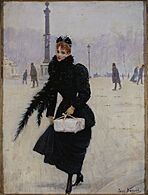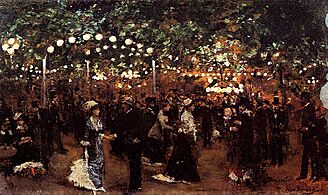Jean Béraud facts for kids
Quick facts for kids
Jean Béraud
|
|
|---|---|
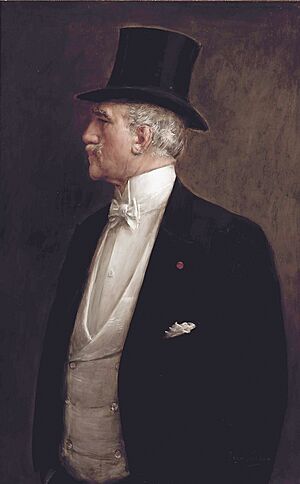
Self portrait (ca. 1909)
|
|
| Born | January 12, 1849 |
| Died | October 4, 1935 (aged 86) |
| Resting place | Montparnasse Cemetery |
| Nationality | French |
| Education | Salon (Paris) |
| Known for | depiction of Paris life |
| Awards | Legion of Honour (1894) |
Jean Béraud (born January 12, 1849 – died October 4, 1935) was a famous French painter. He was well-known for his many paintings that showed what life was like in Paris, especially the city's nightlife. His pictures of places like the Champs Elysees, cafés, Montmartre, and the Seine River banks show everyday Parisian life during a time called the "Belle Époque". This was a period of peace and prosperity in France. Béraud also painted religious scenes, but he placed them in modern settings.
Jean Béraud's Life Story
Jean Béraud was born in Saint Petersburg, Russia. His father, also named Jean, was a sculptor. He was likely working on the St. Isaac's Cathedral when Jean was born. Jean's mother was Geneviève Eugénie Jacquin. After his father passed away, the family moved to Paris, France.
Jean Béraud was studying to become a lawyer. However, his studies stopped when Paris was taken over during the Franco-Prussian war in 1870. After this, he decided to become an artist.
Béraud became a student of a painter named Léon Bonnat. He showed his paintings at the Salon for the first time in 1872. The Salon was a big art exhibition in Paris. He became famous in 1876 with his painting On the Way Back from the Funeral. He also showed his work at the 1889 World's Fair in Paris.
Jean Béraud painted many scenes of daily life in Paris during the Belle Époque. His style was a mix between the traditional art shown at the Salon and the newer style of Impressionism. In 1894, he received the Légion d'honneur, which is a very important award in France.
Béraud's paintings often showed funny or even mocking views of Parisian life in the late 1800s. He sometimes included characters from the Bible in modern situations. For example, his painting Mary Magdalene in the House of the Pharisees caused some discussion when it was shown because of these themes.
Towards the end of the 1800s, Béraud spent less time painting his own works. Instead, he worked on many art exhibition committees, like the Salon de la Société Nationale. Jean Béraud never married and did not have any children. He passed away in Paris on October 4, 1935. He is buried next to his mother in Montparnasse Cemetery.
Painting Style
Jean Béraud was very popular in France. The famous writer Guy de Maupassant even called him "the most charming of dreamers."
However, art historians at the time did not pay much attention to his work. After the Russian Revolution, some Russian artists looked at Béraud's paintings with a bit of humor. They saw them as showing the rich tastes of the middle class in Western countries.
Béraud's painting style slowly changed from traditional academic art towards impressionism. While many famous Impressionist painters left the busy city of Paris to paint landscapes, Béraud stayed. Like his friends Édouard Manet and, in some of his works, Edgar Degas, Béraud painted the busy city life of Paris in the late 1800s.
Béraud used special techniques in his art. For example, in his painting À la salle Graffard, the top part of the picture looks a bit hazy. The people watching in the front seem very excited, and the speakers stand out against a darker background. Other artists later used some of these techniques.
Gallery
- Jean Béraud's Paris scenes
- Jean Béraud's Paris cityscapes
-
Paris Kiosk 1880–1884, Walters Art Museum
Images for kids
See also
 In Spanish: Jean Béraud para niños
In Spanish: Jean Béraud para niños
 | Calvin Brent |
 | Walter T. Bailey |
 | Martha Cassell Thompson |
 | Alberta Jeannette Cassell |


